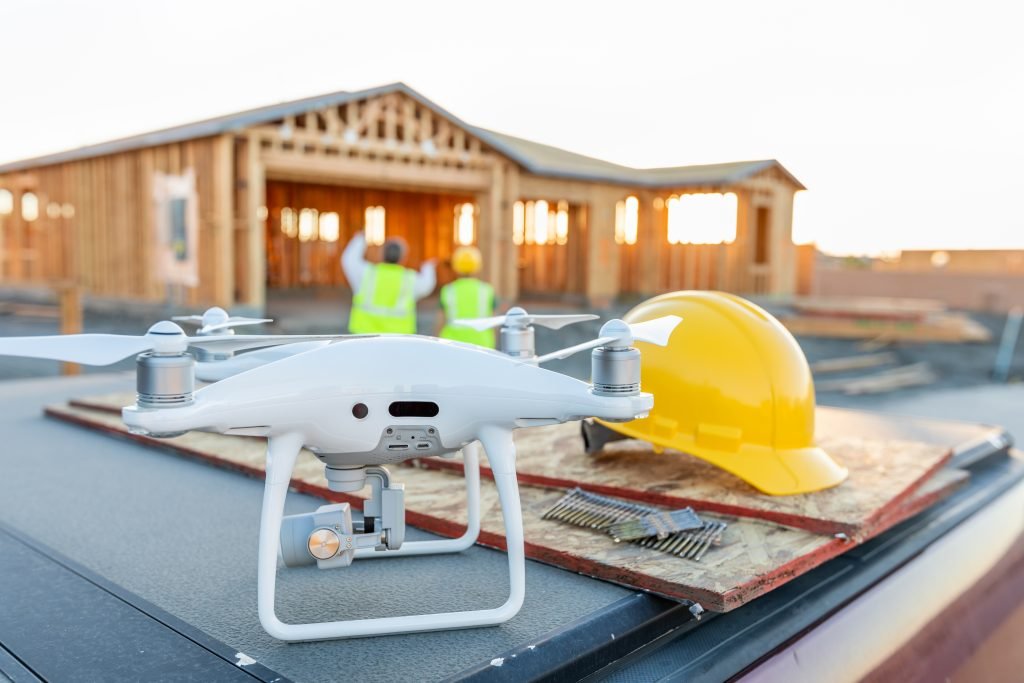
The object where it captures the moments and provides the visual data is drones. Today the use of drones is evident and people are likely to adopt these technological advancements. Some of the Artificial Intelligence colleges in Coimbatore assure their students to acknowledge the use and give practical sessions on how to operate drones. This positive influence can direct the students towards new innovations. Secondly, industries and companies utilize these drones to enhance workplace safety which continues to provide better results. Particularly in the construction field, they can foresee issues through drones such as electrocutions, falls or some other minor damages. So, it improves the safety of the employees and this directs to various benefits to the work environment and to the employees like,
- Training replacement employees
- Job transfers or restrictions
- Accident investigation and implementation of corrective measures
- Lost productivity
- Repairs of damaged equipment and property
- Lower employee morale
- Cut down on the number and severity of accidents
Get a real-time analysis:
Now, the world is trying to adapt to the new 5G technology and so the innovations in the technology go. It means that with the power of 5G, virtual reality applications are emerging which are next-generation inspections and resource monitoring. This integration has major benefits which are, low latency that makes it possible to control from miles and can generate real-time data. The data transfer is rapid, which makes it possible to send a lot of data.
How can engineers benefit from this?
Drones are one of the innovations that are still evolving and making it possible for engineers to redesign the tech based on the needs. So, every industry drone engineer are required to foresee the missed-out information by the human. The basic responsibilities of drone engineers are,
- Make mechanical structures for drones, like propellers and parts for the fuselage.
- Create enclosures for batteries of the next generation.
- Learn and iterate by collecting and analyzing flight data.
- Create custom camera mounts and enclosures.
- Test the systems of drones
- Create jigs and fixtures for manufacturing procedures.
- Apply critical thinking and work with other engineers.
- hands-on vehicle construction and collaboration with technicians.
- Collaborate with manufacturers and make purchases of parts and bills of materials.
Some might be aware of drones which are now utilized for capturing moments on the grand occasions. And it becomes common when the future generation owns their drones individually. However, the top engineering colleges in Coimbatore and universities in India hold a huge responsibility in bringing awareness to how drones are utilized and giving hands-on experience to their graduates. Let’s discuss how engineers can make use of drones and their expansion in other industries and areas.
Design engineers or architects:
Drones with cameras and sensors can quickly collect high-resolution images, which can be used to create detailed maps and 3D models of infrastructure, landscapes, or construction sites. Engineers and planners can use this data to evaluate the terrain, keep track of progress, and make informed decisions.
Civil industry:
As already said, employee safety is a priority in the construction field. So, the drones are used to inspect the areas like buildings, power lines, bridges, pipelines and other infrastructures. With onboard cameras and sensors that gives easy access to the difficult to reach areas and can capture the visual data. This is one of the benefits for the engineers to find the mistakes and keep on the structure integrity and can make effective plans for maintenance and security. And secondly, drones can improve the safety of the workers, reduce human error and boost project coordination among the workers.
Real time data is helpful to spot the error and monitor the progress.
Effects in environment:
The drones with sensors can easily monitor the air quality, temperature, water quality and vegetation. The benefit of this data is to manage natural resources more effectively, evaluate environmental effects, and respond to unexpected events more quickly.
Agricultural field:
Drones equipped with multifaceted or thermal sensors can be used to monitor crop health, detect disease or insect infestations, and improve irrigation. This information can be used by farmers to manage crops more effectively, boost yields, and use less pesticide and water.
Mining field:
Drones are employed in mining operations to map and scan extraction areas, monitor reserves, and assess potential hazards. They can be helpful in mineral discovery by identifying geology features, gathering geospatial data, and doing surveys from the air.
Identification purposes:
Drones can be immediately deployed to examine disaster-devastated areas, find people who have gone missing, and support emergency response teams. Situational awareness is provided by live video feeds, and the search for survivors can be aided with thermal cameras and sensors.
To conclude, drones are playing a larger role in engineering and business thanks to technological breakthroughs such increased flying stability, battery life, cargo capacity, and data processing power. However, laws and safety issues are constantly changing in order to guarantee moral and responsible drone operations. Second, if students wish to explore or innovate more, they can get the opportunity to start their careers in mechanical and electrical engineering courses in the top 10 engineering colleges in Coimbatore. The expansion and utilization of drones are quite huge and their significance in every sector may surge in the future as technological advancement grows.
